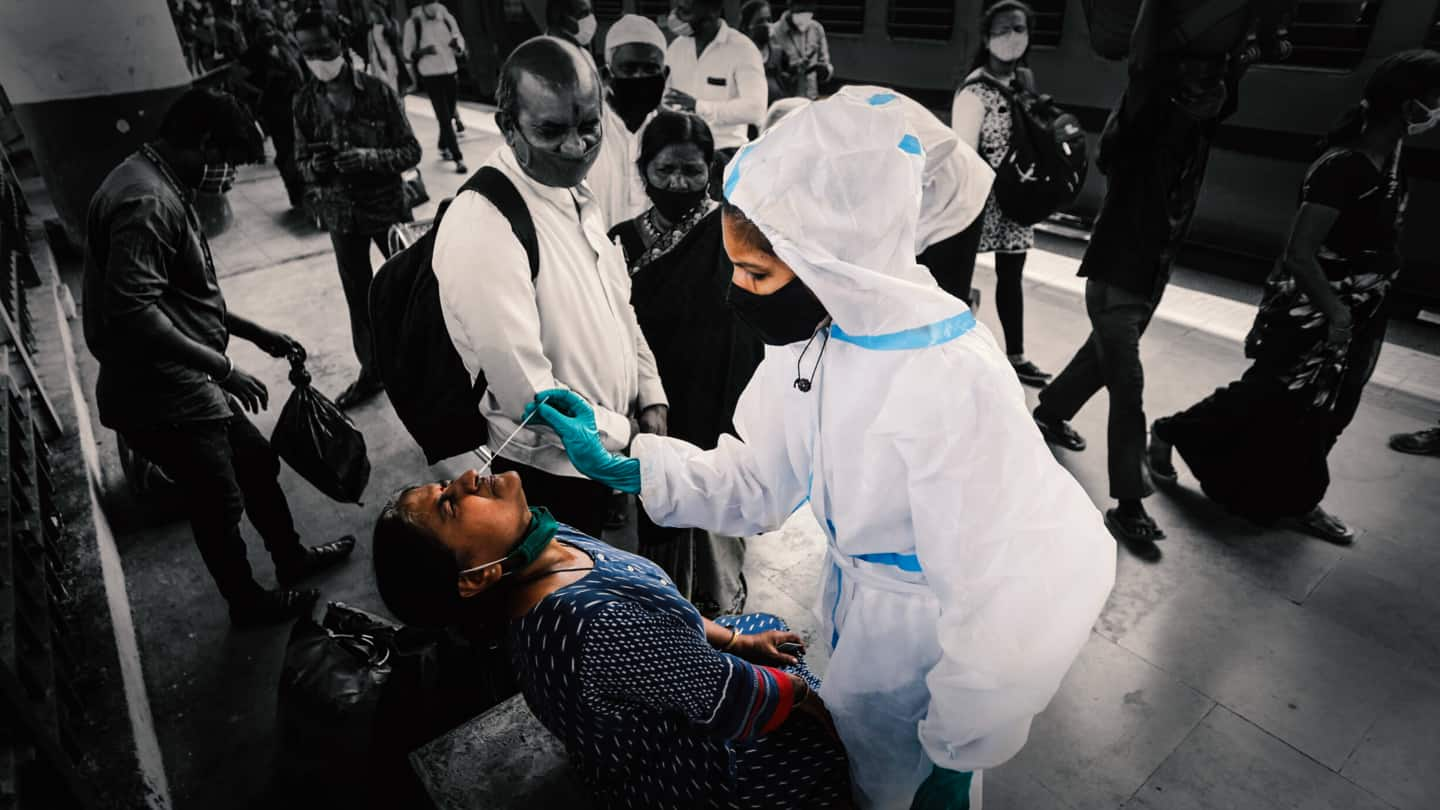
Coronavirus: India reports 26K new cases; over 270 more dead
What's the story
India on Monday reported over 26,000 new COVID-19 cases, out of which, nearly 60% of the fresh infections were concentrated in Kerala.
Active cases accounted for 1% of the total cases in the country. The recovery rate stood at 97.78%.
The daily positivity rate—which has been under 3% for the past 28 days—stood at 2.24%. The weekly positivity rate was recorded at 1.94%.
Statistics
India's tally nears 3.36 crore; nearly 4.47 lakh dead
According to the Union Health Ministry, till Monday morning, India reported a total of 3,36,78,786 COVID-19 cases. The death toll has reached 4,47,194.
So far, 3,29,31,972 patients have recovered, while 2,99,620 cases involve active infections.
In the past 24 hours alone, India recorded 26,041 new infections, 29,621 more discharges, and 276 fresh fatalities.
86,01,59,011 vaccine doses have been administered so far.
Trend
India's second wave peaked on May 7
To recall, India's second wave peaked on May 7, when 4.14 lakh single-day cases were reported, over four times the number of cases reported during the first wave in mid-September 2020.
Although infections have declined since the second wave peaked, India crossed the 3 crore-mark on June 23.
India had crossed the 1 crore-mark on December 19, and the 2 crore-mark on May 4.
States
61% new cases concentrated in Kerala
Maharashtra reported 3,206 new COVID-19 cases along with 3,292 more recoveries.
Kerala, the second worst-hit state after Maharashtra, reported 15,951 new cases and 17,658 discharges.
Meanwhile, the third worst-hit Karnataka added 775 new cases and 860 recoveries.
Tamil Nadu, the fourth worst-hit state, reported 1,694 new cases and 1,658 recoveries.
Andhra Pradesh reported 1,184 new cases and 1,333 recoveries.
Third wave
'No evidence that third wave will affect children more'
Separately, Central Indian Academy of Pediatrics (CIAP) President Dr. Piyush Gupta has said that there is no scientific evidence to suggest that children will be more infected during the third wave.
Children were 90% asymptomatic and those affected were infected by adults during the first and second waves of COVID-19.
The children who had severe infections had co-morbid conditions and were immunocompromised.
Study
COVID-19 reduced life expectancy most since WWII: Study
Further, a study published by Oxford University on Monday said that the COVID-19 pandemic reduced life expectancy in 2020 by the largest amount since World War Two.
The study analyzed 22 of the 29 countries, which spanned Europe, the United States and Chile. Life expectancy declined by over six months compared to 2019, it found. Life expectancy dropped in 27 of the 29 nations.